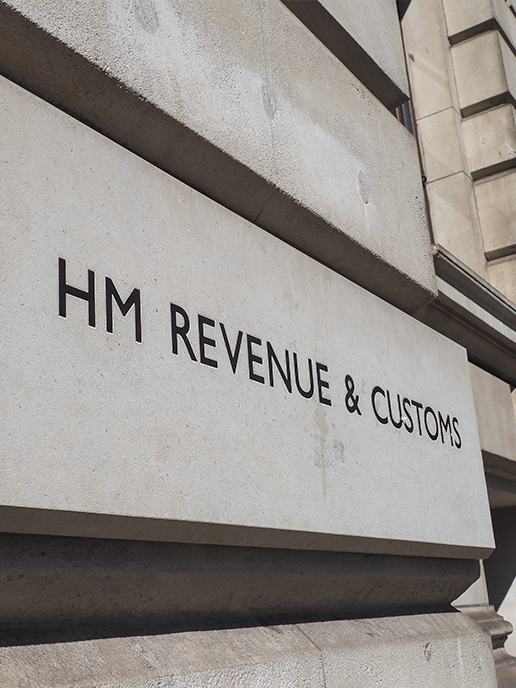Could tougher regulation in the Research and Development (R&D) sector actually be a good thing for businesses?
The news that Her Majesty's Revenue & Customs (HMRC) have drafted a further on compliance officers into their Research and Development (R&D) team to look into enquiries could strike fear into the hearts of many. Such manpower is sure to unearth many spurious claims that were undoubtedly submitted in the hope that HMRC wouldn’t have the capacity to question their legitimacy. The resulting investigations could be catastrophic for the businesses that made those claims; saddling them with the cost of paying back all of the benefits they received, interest charges and penalties, plus the cost of the enquiry itself.
For many companies, this could have an impact on cashflow and the capacity to trade. But could more scrutiny and stricter regulations actually prove to be productive in the long run?
A rising number of claims
As of 30 June 2020, there were 59,265 R&D tax credit claims made for 2018-19, resulting in £5.3bn of R&D tax relief support claimed, corresponding to £35.3bn of R&D expenditure. While it is positive that businesses are making the most of this tax relief, it is imperative that only those with a valid claim should do so. Justine Dignam, Director of Tax Incentives and Reliefs at Markel UK, says:
“We are seeing a real increase of spurious claims being brought to our attention. They don’t qualify, but for whatever reason, the directors of the businesses have been told by other providers that they do. It is increasingly frustrating seeing businesses being targeted quite aggressively and putting in claims that simply do not qualify.
“There is safeguarding in place across the professional bodies, and five fundamental principles that should be followed, which are integrity, objectivity, professional competence, confidentiality, and professional behaviour. All financial organisations should follow or adhere to those principles, but the problem is not everybody does.”
The issue HMRC are facing is that a potentially large number of invalid claims have been processed and paid without being individually checked or challenged. There is a significant need to review claims with more scrutiny, to deter organisations from putting in claims and knowing that they probably don’t qualify but hoping they will slip through the net.
“HMRC don’t scrutinise every claim that is submitted. But that doesn’t mean this practice it is going to continue,” says Justine. Indeed, the recruitment of those 100 compliance officers certainly suggests a step-change is very much in progress.
Risky business
While the initial pay-out for these claims may be tempting for businesses, they need to consider the consequences should the claim be investigated and found to be invalid at a later date. In cases like this, businesses are not only faced with the cost of paying back the money received, they will also be subject to potential penalties. Justine elaborates:
“If a business is found to be putting in a claim that isn’t valid, then HMRC could go back and open all the previous claims. Obviously, there’s a risk there that somebody could have been making incorrect claims for a number of years and HMRC will want all that money back, with the likelihood of additional penalties and fines.”
Even if businesses were advised that they could make the claims, they may still need to pay interest and penalties. Justine discusses the risks of working with less reputable providers: “I think the problem is going to be in the future. All of a sudden you are going to have litigation against these providers who have told businesses that they can make a claim, but they can’t.” She goes on to explain that, without evidence of documentation, there is no risk for those providers, and the business will be responsible for paying the penalties. “The directors are the ones liable for the submission, it is self-assessment and as such they are the ones that are going to be liable for any repayments, penalties and fines that the business may be subjected to.”
Better in the long run
Instead of being a barrier to businesses accessing tax relief, the increased scrutiny and tighter regulations could help businesses in the longer term. “It will prevent people from claiming when they shouldn’t, which means preventing businesses from putting themselves in risky situations where they may be liable to pay everything back, and more,” says Justine. Knowing that claims will be looked at more closely by HMRC is also a deterrent for providers encouraging those invalid claims.
For more reputable providers, the news that HMRC is initiating stricter regulation comes as a relief. “We would welcome further regulation and more scrutiny from HMRC,” says Justine. “As a firm that has been involved in the R&D sector from many years, we adhere to and support the principles of professional conduct in relation to taxation (PCRT), meaning we consistently hold ourselves to the highest ethical standards. We have always been committed to making sure that the claims that we put in are robust and qualify. Often that means telling people they don’t qualify as we need to make sure that the right people are claiming the right amount of money for the right activity.”
HMRC’s tighter regulations should help to stop questionable organisations pushing through as many claims as they can just to make a profit. This in turn will protect businesses from being pressured to submitting ineligible claims and putting themselves at risk.
